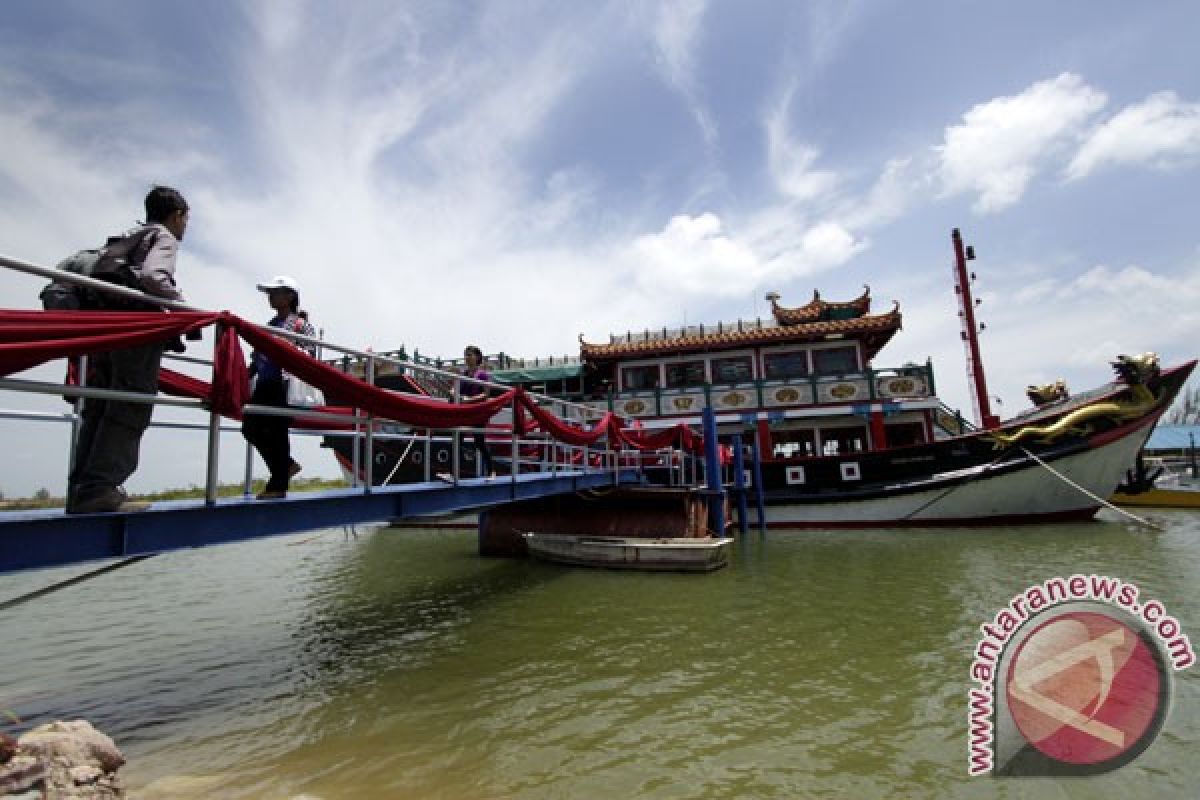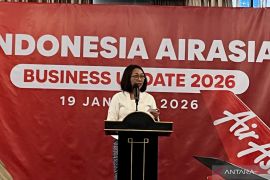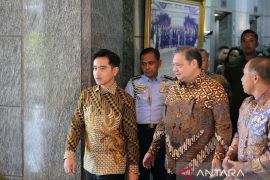We hope it would lead to business transactions."Jakarta (ANTARA News) - Indonesia is intensifying its tourism promotional activities in the Middle East and China in an effort to attract 12 million foreign tourists this year and 20 million by 2019.
In a bid to lure international tourists from these two regions, the Indonesian government is developing special tourism destinations. As tourists coming from the Middle East are mostly Muslims, 10 provinces are now being developed as Halal tourism destinations.
Besides this, the Indonesian government is also preparing 10 tourism destinations known as the "10 New Balis." These ten new destinations are expected to become as popular as Bali, the famous Indonesian tourist resort island of Bali Province.
Minister of Tourism Arief Yahya had stated recently that the term "New Bali" was an expression that promoted new destinations to attract as many tourists as those visiting Bali Island.
The ten prioritized tourism destinations in 2016 include Lake Toba (North Sumatra), Belitung (Bangka Belitung), Tanjung Lesung (Banten), Seribu Islands (Jakarta), Borobudur Temple (Central Java), Mount Bromo (East Java), Mandalika Lombok (West Nusa Tenggara), Komodo Island (East Nusa Tenggara), Wakatobi National Park (Southeast Sulawesi), and Morotai (North Maluku).
However, both Muslim and non-Muslim tourists can choose between the two types of tourism destinations either to visit the Halal tourism destinations or the New Balis. Halal tourism is designed not only for Muslims but also for non-Muslims.
"A misunderstanding still exists regarding Halal tourism, and some people think it is meant only for Muslims as all aspects must be based on shariah. However, Halal tourism means the destination, accommodation, culinary delicacies, and tourist attractions must all be in accordance with the Halal concept," Burhasman, head of the Tourism and Creative Economy Office of West Sumatra Province, stated recently.
Therefore, the 10 Halal tourism destinations are also being offered to non-Muslim tourists. The Indonesian Tourism Ministry has designated at least 10 provinces as Halal tourist destination regions, which comprise six provinces or special regions in Java (Banten, Jakarta, West Java, and Central Java, in addition to Yogyakarta and East Java), two in Sumatra (West Sumatra and Aceh), one in Kalimantan (South Kalimantan), and one in Nusa Tenggara (West Nusa Tenggara or NTB).
While developing Halal tourism destinations, Indonesia is also increasing its promotional activities in the Middle East, including by participating in various travel expositions.
On April 25-28, 2016, for instance, Indonesia will take part in the "Arabian Travel Mart" in Dubai.
"This is an effort to attract tourists to Lombok in NTB Province. It has been known as a tourist resort that won the Worlds Best Halal Tourism Destination and Worlds Best Halal Honeymoon Destination," Indonesian Ambassador to United Arab Emirates (UAE) Husin Bagis noted in Abu Dhabi on Sunday (April 17).
He said Indonesias participation in the travel mart was part of its efforts to promote the countrys tourism destinations to boost foreign tourist arrivals from the Middle East.
The ambassador said his side will also approach Etihad Airways to open direct flights from Abu Dhabi to Lombok, NTB Province.
According to Bagis, promotional efforts were also being carried out through advertisements in flight magazines of Garuda Indonesia and Etihad Airways. A cultural promotion and a trip program for journalists from the UAE to visit shariah tourism destinations, such as Lombok, West Sumatra, Aceh, and South Sulawesi, were also organized.
"These promotional activities also involved Indonesian citizens staying in the UAE," he noted.
Besides promoting its tourism destinations in the Middle East, Indonesia has also set its sights on luring tourists from China. It is even offering an opportunity to Chinese businesses to invest in tourism destinations in Indonesia.
The assistant deputy for Asia Pacific market development of the Ministry of Tourism, Vinsensius Jemadu, had earlier said Indonesia has selected China to intensively market its diving tourism as a large number of Chinese tourists can potentially visit the country.
Indonesia would continue to promote diving tourism in China, he said last month.
"We have already sent a diving tourism sale mission to Chongqing, which is one of the four municipalities under the direct control of the central government in China," he said.
He said his office conducted a "China Diving Sales Mission" on March 16, the first to be held in that city, bringing together Indonesian and Chinese tourism businesspersons.
"We hope it would lead to business transactions. The response was good," he said.
Asia Pacific market development staff William Kalua, who participated part in the initiative, said he showcased a large number of tourism destinations in Indonesia at the event.
"A lot of people there did not know that Indonesias coastline stretches for more than 5,000 kilometers, longer than that of China. Most of Indonesia is waters, making it a country very rich in marine tourism potential, including diving," he said.
Indonesia is making its efforts not only to attract Chinese tourists but also lure investors from that country.
Tourism Minister Arief Yahya has offered three tourism destination investment opportunities to Chinese investors wishing to invest in tourism business in Indonesia.
"I have offered investment opportunities in three main tourism destinations to Chinese investors in the Anhui Province," the minister said when contacted on phone from Jakarta on Saturday.
Minister Arief Yahya was on a visit to the Chinese province of Anhui to meet the local government officials to offer investment opportunities in North Bali, Bintan Island in Riau Islands province near Singapore, and Manado, the provincial capital of North Sulawesi, in Indonesia.
He said investment in these three destinations is still very promising. For instance, in North Bali, the land is still very cheap and is available at a price one-tenth of the prevailing rate in South Bali.
A lot of Chinese tourists prefer visiting Bintan and Manado.
"Investment will be needed in infrastructure such as a toll road and an airport, especially in Bali. Possibly, there will be investors from Anhui who want to invest in these," the minister said.
(Uu.A014/INE/KR-BSR/F001)
Reporter: Andi Abdussalam
Editor: Priyambodo RH
Copyright © ANTARA 2016












